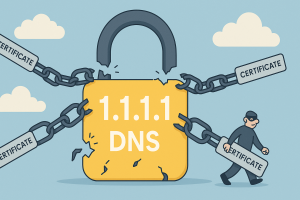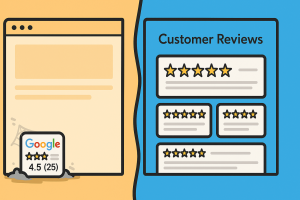 On Wednesday, researchers uncovered three improperly issued TLS certificates for Cloudflare’s 1.1.1.1 DNS service, encrypted DNS lookup used by millions. The concern was clear: anyone with those credentials could impersonate Cloudflare’s resolver, decrypt user traffic, or redirect queries to malicious sites.
On Wednesday, researchers uncovered three improperly issued TLS certificates for Cloudflare’s 1.1.1.1 DNS service, encrypted DNS lookup used by millions. The concern was clear: anyone with those credentials could impersonate Cloudflare’s resolver, decrypt user traffic, or redirect queries to malicious sites.
Further investigation revealed the breach was worse than initially thought. Cloudflare confirmed that Fina CA—a Microsoft‑trusted certificate authority, had in fact issued a total of twelve unauthorized certificates for 1.1.1.1 since February 2024. [Read more…]
 A sinister campaign known as ShadowCaptcha is using over 100 compromised WordPress sites as unwitting hosts, redirecting visitors to fake CAPTCHA pages. These deceptive pages trigger malware delivery ranging from credential stealers to ransomware and cryptocurrency miners.
A sinister campaign known as ShadowCaptcha is using over 100 compromised WordPress sites as unwitting hosts, redirecting visitors to fake CAPTCHA pages. These deceptive pages trigger malware delivery ranging from credential stealers to ransomware and cryptocurrency miners. Cyberattacks on U.S. federal courts are no longer just IT problems. They now pose a national security threat.
Cyberattacks on U.S. federal courts are no longer just IT problems. They now pose a national security threat. You work hard for good reviews. You earn them one customer at a time. They land on your Google Business profile for everyone to see. And then… you stick a link in your footer and call it a day.
You work hard for good reviews. You earn them one customer at a time. They land on your Google Business profile for everyone to see. And then… you stick a link in your footer and call it a day. Why Shadow AI Slips Past Security
Why Shadow AI Slips Past Security